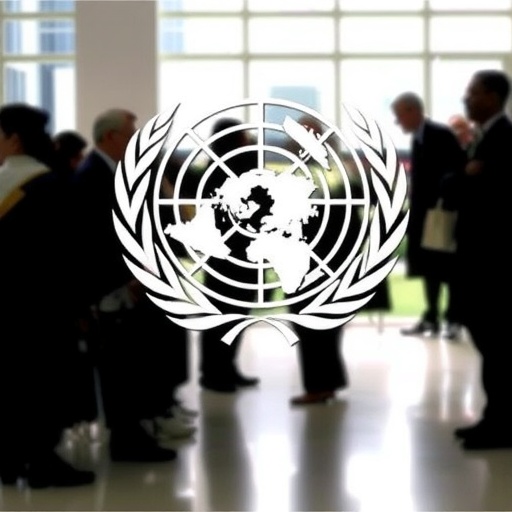In recent years, the discourse surrounding inclusive education has gained momentum, especially in the context of higher education for individuals with intellectual disabilities. A pivotal work by O’Callaghan, Leane, Maxwell, and their colleagues examines the pressing obligations set forth for higher education institutions under the framework of the United Nations Convention on the Rights of Persons with Disabilities. This article emphasizes not only the legal requirements but also the moral imperative to embrace inclusivity in academic settings.
The essence of inclusive higher education cannot be overstated, as it serves to level the playing field for individuals who have historically been marginalized within educational frameworks. The authors assert that inclusion is not merely a supplementary feature of educational systems but is a fundamental right that underpins the dignity of all individuals. The article critically evaluates how the United Nations Convention obligates institutions to construct environments where all learners, independent of their intellectual capacities, can thrive.
One of the core tenets discussed is the legal obligation to facilitate the access and participation of students with intellectual disabilities in higher education. The UN Convention explicitly mandates that state parties take necessary steps to ensure inclusive education, moving beyond mere physical access to encompass meaningful engagement and participation in academic and social life. This holistic approach encourages institutions to reassess their policies and practices to align with international standards of equality and inclusion.
Moreover, the authors highlight the significant role that institutional leadership plays in fostering an inclusive educational framework. Leadership commitment is essential in driving policy changes, ensuring that necessary resources are allocated for the development of support systems that cater to diverse learning needs. It is not enough for institutions to adopt a passive stance; proactive measures must be instituted to uphold the principles outlined in the UN Convention.
An important aspect of the discussion involves the design of curricula that are adaptable and accommodating to the varied needs of learners with intellectual disabilities. Recognizing that a one-size-fits-all approach is counterproductive, the authors advocate for differentiated instruction and the use of Universal Design for Learning (UDL) principles. These strategies not only support students with intellectual disabilities but can enhance the learning experience for all students by promoting varied methods of engagement and expression.
Assessment practices in higher education also warrant significant attention. Traditional assessment methods often favor certain learning styles and may inadvertently disadvantage students with intellectual disabilities. The article argues for the adoption of alternative assessment strategies that focus on students’ strengths rather than their limitations. By implementing fair and inclusive assessment practices, institutions can better measure student progress and promote a sense of achievement among all students.
The need for training and professional development for faculty and staff cannot be overlooked. The authors discuss the importance of equipping educators with the knowledge and skills necessary to understand the needs of students with intellectual disabilities. Continuous professional development programs should aim to dispel myths and stereotypes while providing practical strategies for effective teaching and support.
Furthermore, collaboration with families and support organizations emerges as a crucial element in the successful implementation of inclusive education. The article suggests that by engaging with families, institutions can gain valuable insights into the challenges and strengths of their students. This collaboration fosters a supportive community that extends beyond the classroom, facilitating a smoother transition into higher education for students with intellectual disabilities.
The role of technology in enhancing inclusive education cannot be underestimated. The authors explore various technological tools that can support students with intellectual disabilities in overcoming barriers to learning. This includes assistive technologies that facilitate communication, learning management systems that are accessible, and online resources that cater to diverse educational needs.
As inclusive higher education continues to evolve, the article calls for ongoing research and advocacy. There is an urgent need to investigate the long-term outcomes for students with intellectual disabilities in inclusive settings, as well as to share successful practices and strategies across institutions. The authors emphasize that sharing knowledge can lead to a broader cultural shift towards inclusivity in higher education.
The discussion on inclusive education extends beyond legal requirements; it addresses ethical considerations as well. The authors challenge institutions to reflect on their values and commitments to diversity and inclusion. This reflection should drive institutional policies and foster a culture that celebrates diversity rather than merely tolerating it.
In summary, O’Callaghan and colleagues present a compelling case for the responsibilities of higher education institutions in creating inclusive environments for individuals with intellectual disabilities. The implications of their findings are profound, as they call for a transformation in educational practices, policies, and attitudes towards inclusion. Their work is a clarion call for action, urging educators, administrators, and policymakers to re-envision the landscape of higher education on a foundation of inclusivity and respect for all individuals.
As institutions strive to embrace these ideals, the journey towards true inclusivity may be challenging, yet it is essential. By adhering to the principles outlined in the UN Convention, higher education institutions can genuinely commit to creating a society where all individuals, regardless of their intellectual capabilities, are afforded the opportunity to learn, grow, and contribute in meaningful ways.
Subject of Research: Inclusive higher education for individuals with intellectual disabilities
Article Title: Inclusive higher education for people with intellectual disability: obligations for higher education institutions under the United Nations Convention on the Rights of Persons with Disabilities.
Article References:
O’Callaghan, E., Leane, M., Maxwell, N. et al. Inclusive higher education for people with intellectual disability: obligations for higher education institutions under the United Nations Convention on the Rights of Persons with Disabilities.
High Educ (2025). https://doi.org/10.1007/s10734-025-01536-7
Image Credits: AI Generated
DOI: https://doi.org/10.1007/s10734-025-01536-7
Keywords: Inclusive education, intellectual disability, higher education, UN Convention, accessibility, differentiated instruction, technology in education, assessment practices, faculty training, collaboration, advocacy.




